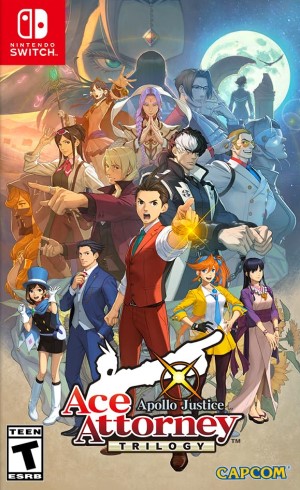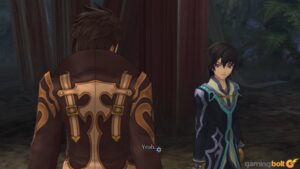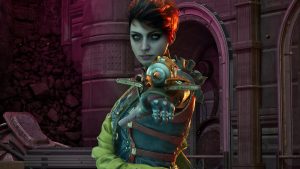
While the entirety of Ace Attorney series is beloved, there is no denying that some games are more beloved than others. The original trilogy, which kicked it all off, is widely acclaimed. The Great Ace Attorney games, which puts the series’ trappings in a Victorian British setting while retaining the same style of writing and gameplay, is often regarded as some of the best work the series has done. Which leaves the remaining three games – the second set of three of the original six Phoenix Wright games, which sought to continue the series after the arc was considered concluded in the original games.
While initial reception to these games was more divided than to any other set in the series, over time, fondness for these games has grown too. These games are decidedly different from the rest of the series in some almost intangible ways – from the bold (if controversial) story decisions that Apollo Justice (the first one in this trilogy) makes to some increasingly contrived plotting in the later games, these ones do not feel as cohesive or as tightly written as either the original Ace Attorney trilogy, or The Great Ace Attorney.
"While initial reception to these games was more divided than to any other set in the series, over time, fondness for these games has grown too. "
That’s not necessarily a bad thing – for one, it means if you don’t like one of these, you have a higher chance of liking the others, which isn’t something you can say about the other two sets of games. It also means that each of the games feels distinct – the characters and their motivations and statuses change across games, the settings change across games, and in fact, since the original games straddled two generations of hardware, we even get a dramatic bump in presentation in the later two games, with a move to surprisingly well realized 3D models, more dramatic camera angles, and full anime cutscenes. The later games bring their own gameplay gimmicks, with the standout being Spirit of Justice’s Divination Seances.
There’s something to be said for the distinct flair of these games – while a lot of fans were originally outraged at how Apollo Justice handles certain characters, for example, it feels refreshingly bold and unconstrained by the framework of the earlier games with a lot of the narrative and character decisions that it makes. Dual Destinies introduces a fascinating new character in Athena (arguably one of the best characters in the series, in fact), and has a sharp, arrestingly compelling narrative that might have some of the best payoffs in the series. Spirit of Justice narratively feels the most redundant and the most contrived, but is flat out the best one to play through, and the Seance mechanics make each case extremely interesting. The lack of cohesion is a knock against these games, don’t get me wrong – but that also comes with its own unique strengths that imbue these games with a flavour the rest of the series is yet to have.
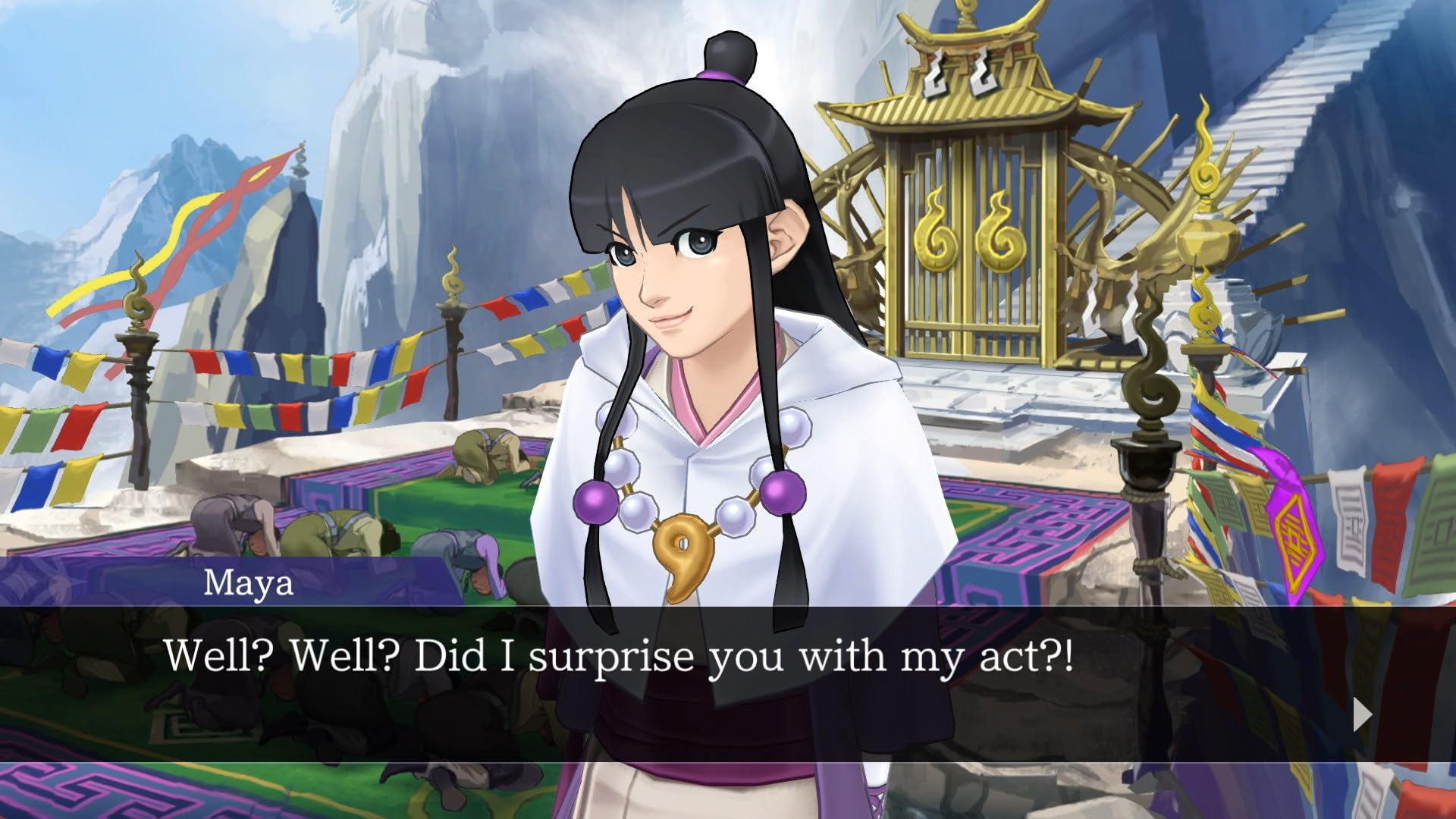
"The unique and distinct character these games have, both narratively and mechanically, makes them well worth experiencing, even with their foibles. "
All three of these games were well worth playing with their original releases, and the final cases in the later games (especially Dual Destinies) are among the best the series has had. Which means that this release of the Apollo Justice: Ace Attorney Trilogy is well worth playing, especially if you are a newer fan who discovered this series later, and never played these games before. The unique and distinct character these games have, both narratively and mechanically, makes them well worth experiencing, even with their foibles.
If you are a fan of the original releases on DS and 3DS, these are greatly incentivized re-releases. The graphics look great upscaled to full HD, the bonuses such as the art gallery, the music gallery, and the movie gallery are all great for fans to dig in to. There are many other QoL additions as well – a new Story Mode lets you simply get through the narrative if you don’t want to deal with the puzzles and gameplay segments, for example, and numerous UI improvements from the later games were back ported to Apollo Justice as well. The games are even set up to let you jump right into the chapter or case you want from the get go if you just want to replay the greatest hits – no need to go through the whole game just to get to the parts you wanted.
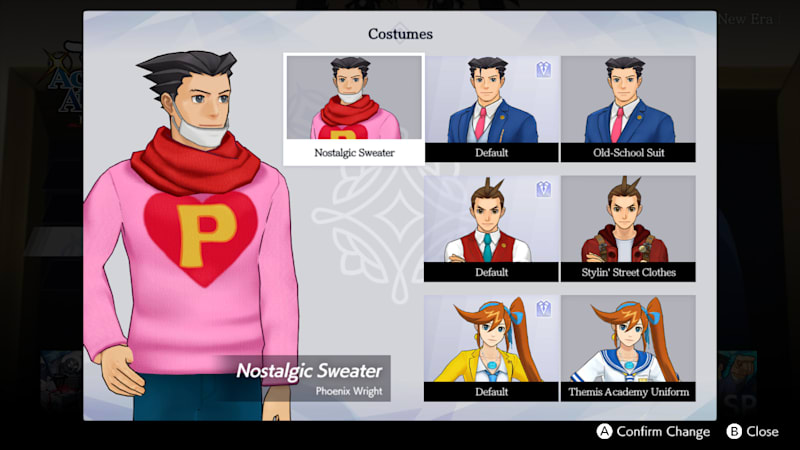
"If you are a fan of the original releases on DS and 3DS, these are greatly incentivized re-releases. The graphics look great upscaled to full HD, the bonuses such as the art gallery, the music gallery, and the movie gallery are all great for fans to dig in to. "
There are some tradeoffs that have had to be made to bring these games to modern hardware though. The original titles, especially the 3DS entries Dual Destinies and Spirit of Justice, made some great use of the hardware’s unique dual-screened nature that obviously was not possible to translate as-is to either PC, Xbox, PlayStation, or Switch. And so those gameplay segments are a bit different because none of these systems have two screens. Functionally, it comes out to being roughly the same thing – you still have to keep track of footage and evidence across two independent but correlated displays – but for purists who do care about the authenticity of the original experience, that’s still something to take note of.
Those tradeoffs aside, the games are brought over pretty much as-is. They are extremely faithful reproductions of titles that have only gotten better with age and with some distance from the circumstances of their original releases. If you liked them then, you’ll like them now. If you didn’t like them then, you may find yourself more receptive to them this time around. And if this is your first time discovering them, then you’re in for a ride either way.
With the Apollo Justice: Ace Attorney Trilogy, the developer has finally finished bringing over the entirety of the Ace Attorney series to modern platforms, in multiple languages and localizations. These once niche but now iconic games are finally accessible to anyone who may be interested, with all sorts of QoL perks and bonus content celebrating these games included to boot. Getting to go through this series again on modern systems has been great, and has only served as a reminder of the brilliance of the gleefully deranged anime courtroom drama series. All of this is to say, I sincerely hope an Ace Attorney 7 is around the corner. I am glad we got to play these great games again in their best form yet – but rather than whetting my appetite for more, they only served to make it even more ravenous. Hopefully the next major entry in this franchise is coming soon – but until then, Apollo Justice: Ace Attorney Trilogy is a great release for new and old fans of the franchise alike.
This game was reviewed on Nintendo Switch.
Some bold narrative choices in these games; some great new gameplay additions in the later games; some of the best cases in the series are in these games, especially Dual Destinies; the upscaling to HD is great, and all the new bonus content and QoL perks are excellent.
These three games lack narrative or mechanical cohesion; the narrative in later games, especially Spirit of Justice, starts to feel increasingly contrived in some ways; some minor tradeoffs have had to be made to bring these games over from dual-screened systems to modern hardware.










